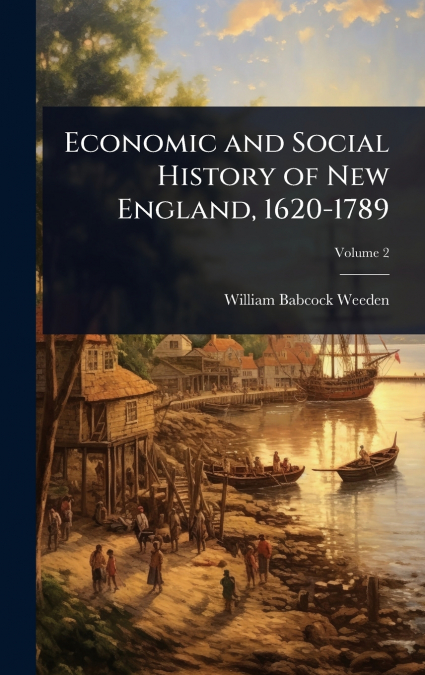
William Babcock Weeden
Delve into the formative years of the United States with William Babcock Weeden’s 'Economic and Social History of New England, 1620-1789, Volume 2.' This meticulously researched volume explores the intricate tapestry of economic activities and social structures that shaped the New England colonies during a pivotal era. From the earliest settlements to the eve of the American Revolution, Weeden examines the evolving industries, trade networks, and labor systems that defined the region’s economic landscape. Beyond economics, the book delves into the social fabric of colonial New England, shedding light on the lives of its diverse inhabitants, their customs, and the institutions that governed their communities. Discover the challenges and triumphs of a society in transition, as it grappled with issues of religious freedom, social hierarchy, and political autonomy. This volume offers a valuable resource for historians, researchers, and anyone interested in understanding the roots of American society.This work has been selected by scholars as being culturally important, and is part of the knowledge base of civilization as we know it. This work was reproduced from the original artifact, and remains as true to the original work as possible. Therefore, you will see the original copyright references, library stamps (as most of these works have been housed in our most important libraries around the world), and other notations in the work.This work is in the public domain in the United States of America, and possibly other nations. Within the United States, you may freely copy and distribute this work, as no entity (individual or corporate) has a copyright on the body of the work.As a reproduction of a historical artifact, this work may contain missing or blurred pages, poor pictures, errant marks, etc. Scholars believe, and we concur, that this work is important enough to be preserved, reproduced, and made generally available to the public. We appreciate your support of the preservation process, and thank you for being an important part of keeping this knowledge alive and relevant.